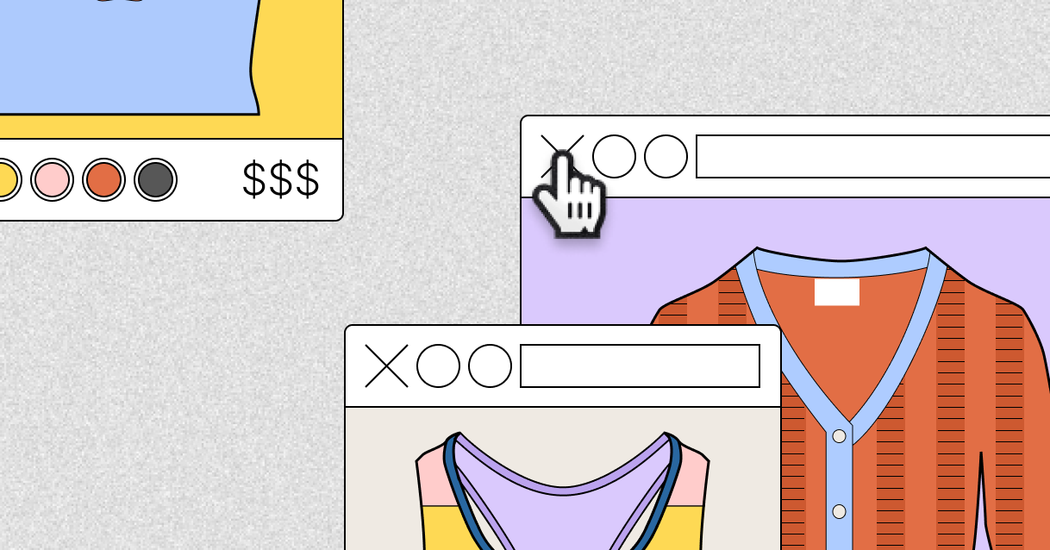
This online shopping comedown isn’t confined to one company. Other e-commerce stars including Etsy and Shopify, whose software powers online businesses for millions of smaller stores, also posted unexpectedly low sales growth or low expectations for the near future. An analysis by Mastercard showed that U.S. online shopping purchases fell in March for the first time in nearly a decade while in-store purchases climbed.
It’s not surprising that e-commerce buying soared when people were hunkered down at home in 2020 and slid backward once many felt more comfortable shopping in person and were again eager to splurge on travel, eating out and other in-person activities. But companies didn’t really see this pendulum swing coming.
Facebook’s parent company, Meta, said last month that its suddenly meh advertising sales were due in part to online shopping companies becoming less eager to buy ads on Facebook when their sales were under pressure. “The acceleration of e-commerce led to outsized revenue growth, but we’re now seeing that trend back off,” Mark Zuckerberg told Meta investors two weeks ago.
And Meta said last week that it was slowing its hiring.
All of this cost-cutting and lack of confidence in the future would have seemed wild six months or a year ago, when Meta, Amazon, Google and other tech companies had stupendously bonkers revenue and profits.
The question this is raising is whether we misjudged the past two years of technology-driven changes in consumer behavior. Yes, some of us who picked up the habits of shopping more from home and Zooming everything will continue to do so. But there’s been a return to 2019 behaviors, too. Last week, I shook hands with everyone at a business meeting and wondered what happened to the prediction that the virus would end handshakes.
We still don’t know what “normal” looks like in the U.S. or elsewhere, and we probably won’t for a year or more as our spending habits adjust to higher prices, ongoing difficulties with manufacturing and shipping, rising interest rates, continued coronavirus infections and a desire to frolic in the real world.
The new normal for shopping probably doesn’t look like either the comeback for physical stores that we’ve seen in the past six months or the surge of online shopping from 2020. It is difficult to predict the collective behavior of millions of Americans. And that is making all of technology shudder.




